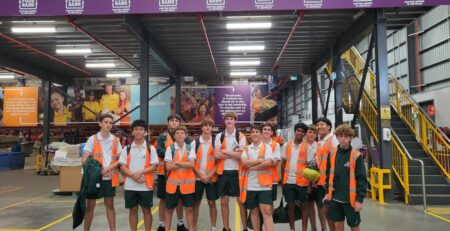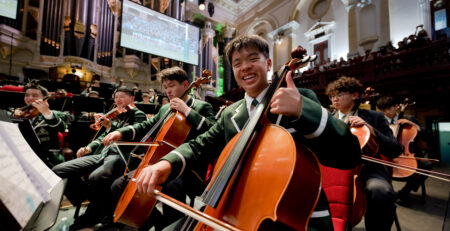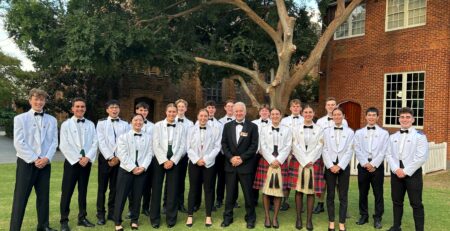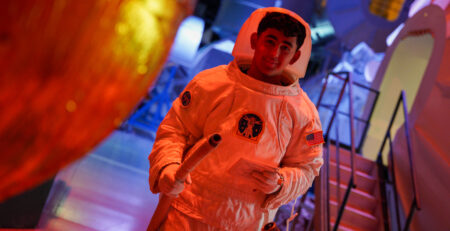Debating | CAS Round 4
7B
On 13 August 2021, the CAS 7Bs team were debating against a formidable team from St. Aloysius’ College. The topic of the debate was “That PDHPE (Physical Education) classes should be compulsory for the HSC”. We were debating the affirmative side of this topic or the ‘for’ side. With a good planning session from the boys and strong communication, we managed to pull out a win against St. Aloysius’, making it the 7Bs’ third win in a row for the CAS debating competition. Stunning efforts from the team, which included A. Viswanathan (7Ta), H. Newman (7WJ), G. Kariatlis (7La) and A. Yee (7Ta).
A. Yee (7Ta)
7A
It was Friday 13 August. The 7A CAS team were yet to win a debate, but they were determined to try their hardest to beat St Aloysius’ College. The team consisted of N. Figliuzzi (7Fo) as First Speaker, J. Arnold (7Ar) as Second Speaker, B. Ashcroft (7Fo) as Third Speaker and E. Eswaran (7We) as our Team Leader/Fourth speaker. It was yet another debate on Zoom, which brought its many challenges. We negated the topic “That PDHPE classes should be compulsory for the HSC”.
We clashed over the question of whether an extra year of PDHPE was necessary or valuable. The opposition argued that the students will value this extra time to learn about their bodies, they also said that it reduces drug, alcohol, and cigarette usage. We refuted these claims, stating that students should choose their own subjects and why it’s impractical for the individual students’ needs. We also brought up the fact that schools might not have the funding to allow PDHPE classes to cater for a wider range of students. Furthermore, we stated that students’ jobs and university opportunities could be harmed by this PDHPE course.
Despite St Aloysius’ hard efforts, Trinity just snagged the win, with two clashes just beating the opposition’s claims. We improved our argumentative skills, incorporating realistic and practical examples, as well as rebutting the larger elements of the opponent’s argument. We managed to reinforce our points and quash most of the opposition’s allegations. We fought our hardest, and it paid off, acquiring the 7A CAS team’s first win of the season after a few rounds of very closely fought debates.
B. Ashcroft (7Fo) and J. Arnold (7Ar)
8A

On Friday 13 August, the CAS 8A team debated against St Aloysius’ College on the topic “That we should legalise the sale of human organs”. As the affirmative team we needed to prove that this change would be of benefit to donors, recipients, and the health care system overall. We also explored the impacts this change would make on the black market. Under our model, we isolated the legalisation of sale to only be between donors and hospitals, with the intention of solving the organ crisis. St Aloysius’ spoke mainly about the practical, monetary, and ethical implications of making such a change, such as exploitation of the poor. In the end we won the debate by justifying how the health benefits outweighed the ethical implications. Our feedback from the adjudicator was to make greater use of anecdotes and examples to thoroughly flesh out the effects of our change on individuals and society. Overall, it was a challenging debate, which put the 8A team in high spirits for next week’s conclusion to the season against Knox Grammar.
C. Ciarroni (8WJ)
Debating News | CAS Round 3
7B
On 6 August, the 7B CAS team debated against Waverley College on the topic that ‘All corporate boards should be represented by 50% women’. After a very close debate we as the affirmative were successful. We argued that a board with 50% women will allow for a more diverse opinion which will benefit all corporations. Waverley, as the negative, argued that boards should be chosen based solely on merit. Congratulations to A. Viswanathan (7Ta), H. Chuchra (7He), G. Kariatlis (7La) and A. Yee (7Ta) who through their strong teamwork were able to secure their second win for the season.
G. Kariatlis (7La)
9B

Last Friday night, after a solid week of online learning, four Year 9 debaters, A. Nair (9Yo), B. Chau (9Du), D. Soysa (9WJ) and N. Ayoub (9Fo), debated against Waverley College as the affirmative team on the topic “That Australia’s foreign aid should be tied to the women’s rights records of recipient countries.”
Our First Speaker gave a detailed and precise model of our team’s case set the stakes high for the affirmative team. He successfully structured our model to reflect the power that restrictions on aid would have on uplifting restrictions on women in those countries to challenge the status quo in these countries. We had lost the previous week’s debate, so when we saw the adjudicator nod in agreement to our arguments, our spirits immediately lifted. Our Second Speaker, B. Chau (9Du), rose to the task of pinning down the arguments of the opposition that we should give foreign aid even if it doesn’t reach the most vulnerable by strengthening the model’s message that it’s more important to effectuate change in these countries through the symbolism of the message, we will be sending them. Our third speaker, D. Soysa (9WJ) strengthened our argument even more through his piercing fracture of the opponent’s argumentative framework. He cleverly summed up our case in the debate, strengthening our rebuttals in the main clashes and raced us successfully to the finish line.
Having watched the Olympics throughout the week, it was motivating for us to have our win and get a feel of victory that has spurred us on to want more!
N. Ayoub (9Fo)
1st III Debating
Last Friday evening, Trinity’s First III Debating Team, comprising D. Chuchra (12He), W. Martin (12WH) and J. Perera (12La),partook in the third round of the CAS Debating Season against Waverley College. Being Trinity’s first virtual ‘home’ debate, Trinity’s First III affirmed the topic: “That, when considering proposed laws that would specifically affect women, only female members of parliament should be allowed to vote”. Coming off a strong ISDA season with frequent practice of Gender-themed debates, this topic presented no obstacles to Trinity. First speaker, D. Chuchra (12He) cogently opened the debate by characterising the status-quo, specifying Trinity’s model, and suggesting mechanisms to reduce systemic discrimination and improve female voice within the Australian Parliament. Startled by Trinity’s rigid model, Waverley undertook an ambitious countermodel to increase the presence of female politicians within the Parliament. Yet second speaker W. Martin (12WH) skilfully addressed the vagueness of Waverley’s countermodel by highlighting the lack of pragmatic mechanisms involved. After further rebutting several of Waverley’s points, he built upon Trinity’s case by depicting the importance of the involvement of women politicians in forming laws that would primarily affect women and displaying the long-term benefits of our model. Despite the attempt of Waverley’s second speaker to find flaws within Trinity’s case, third speaker J. Perera (12La) carefully dissected the main clashes involved with both models and successfully implemented rebuttals to grant Trinity the win. While the strong closing argument sealed the victory against Waverley College this week, more successful debates are hopefully just around the corner. We want to thank our legion of fans and look forward to seeing more attending within the next two weeks. Nonetheless, this would not have been possible without the motivation from our reserve K. Kwok (12WH), the feedback provided by the adjudication panel and our coach Mr Kapaniris, as well as Mr Taplin’s hard work in ensuring that these online debates go as smoothly as possible. We look forward to seeing you all next week at our penultimate debate against St. Aloysius’ College.
D. Chuchra (12He) | Vice-Captain of Debating
















